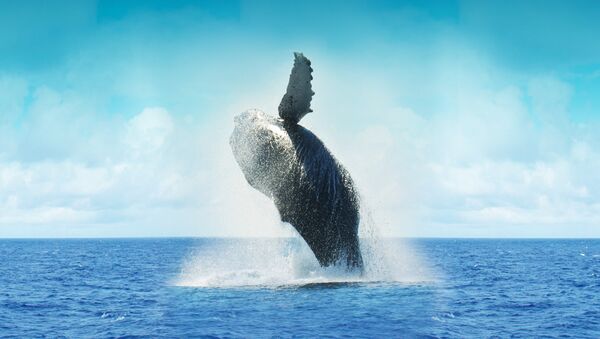Sputnik discussed the move with Alexander Gillespie, professor of international law at the University of Waikato, New Zealand.
READ MORE: Japan Ready to Continue Efforts on Promoting Economic Ties With Russia
Sputnik: The decision comes as a stark deviation from the Japanese approach to the issue of whaling for the past few years. How surprised are you by the move? Why is Japan taking this step?
Alexander Gillespie: I am very surprised because Japan is a country which is a very good international citizen that seems to adhere to international rules and not leave international treaties. For Japan to leave an international treaty, it is a big step in itself. With regards to conservation, I'm not particularly surprised because the monitoring has been in effect for 32 years now, and Japan has consistently argued that it's not necessary; but now they have taken a further step and walked away from the international law.
Sputnik: Why specifically is that? Is that the fact that there're huge amounts of, or there's a market increase in whales in the economic zone that they have territorial rights for? Why is it that they made the decision now to return after June of next year?
Alexander Gillespie: I think it's a combination of both wider politics and the conservation issue. Japan argues that some stocks are robust and that they could take a small sustainable hunt. But in bigger political terms, it is the willingness of Japan to stand a line, and say to the international community 'we're going to make a stand on this issue and we have our own foreign policy.'
READ MORE: Unlikely Beneficiary: Japan Eyes Quicker Economy After US-Mexican Trade Deal
Sputnik: Japan insists that whale meat consumption is part of the nation's culture and it's not endangering species that would be hunted down. What could be the ways to check whether Japan's whaling doesn't harm the endangered stock? Will Japan stick to its promises not to hunt the rare species? What's your take on it? How can this be policed?
Alexander Gillespie: I think their intention is great and they wouldn't intentionally harm endangered stocks. The problem is that, as with any kind of fishing operation, you need strict compliance and that means you need to regulate the catch. The difficulty here is that it's now done domestically without international oversight, many people would be sceptical of what's being caught.
Sputnik: Japan has been able to circumvent the international agreement for scientific research; what happens to this practice now once it resumes commercial whaling? Is there a conflict there or will it be able to separate the two?
Alexander Gillespie: No one is quite sure what the exact details will be. It appears that they will give up scientific research, which is their legal right, but they will give that up in the high seas, and in particular, in their territorial waters in Antarctica. In some ways this could be good for conservation because the scientific whaling around Antarctica will cease and that amounts to 400 whales per year. It also means that without Japan being under the International Whaling Commission, there won't be so many blocks for further global sanctuary for whales; so you might now see an expansion of sanctuaries. But at the same time, you might see more whaling in the territorial seas of countries like Japan.
READ MORE: Japan Economy Braces For Crypto Revolution Amid Trade, Domestic Woes
Alexander Gillespie: I can see the benefit of taking whaling out of Antarctica. And I can see the benefit of taking whaling out of the high seas and removing it to the territorial waters. The problem is that whales are migratory and some of them are endangered. So, I'm 50:50 for whether it is a good or a bad thing; but it certainly is an advance forward. My bigger concern is the willingness of countries to now stick away from the international agreements when they don't think they are in their interest, whether it's Mr. Trump with the Paris Climate Accord, or Japan with the Whaling Accord. There's a risk of a precedent here and countries will just increasingly walk away at a time when we need more global cooperation to solve the most pressing problems.
Sputnik: I understand that you've got a lot of experience in this particular field; what is your advice and recommendation for the global community with regard to international whaling? You have obviously mentioned that there's a paradox here; what is the best way forward so this can be policed effectively and keep the international community satisfied and happy from all the sides when we're talking about the conservation of whales?
Alexander Gillespie: The best step forward would be that there would be an international transparency over the Japanese whale catch. Japan says 'we're going to take whales from our territorial sea', so be it, but if they invited some international oversight or international people to monitor what was taken and then build confidence and robustness of the Japanese hunt that nothing endangered is being taken, that would be a green light and people would be positive. Without that international oversight, the scepticism will be high and a lot of NGOs in particular would ramp up the opposition to the Japanese practice even though it's within the economic exclusive zone of Japan.
The views and opinions expressed by the speaker do not necessarily reflect those of Sputnik.





